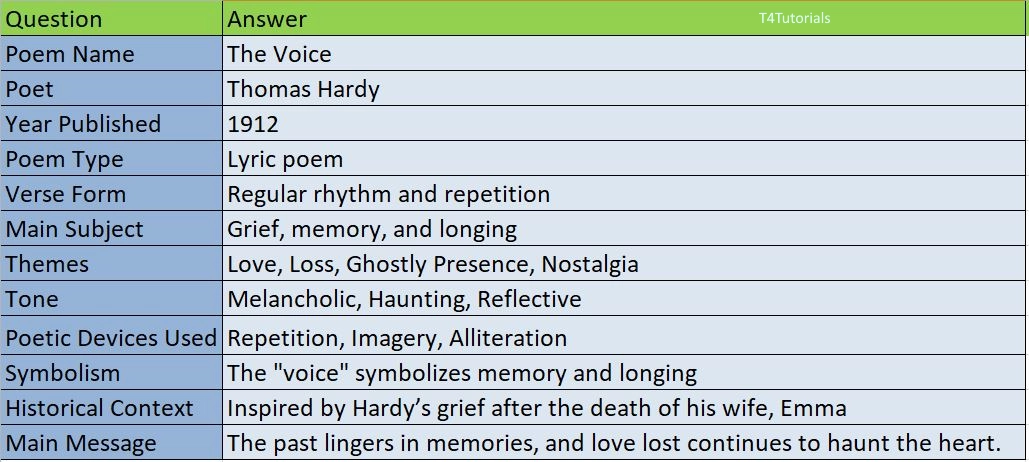Summary:
Thomas Hardy’s poem The Voice is a melancholic reflection on loss and longing, believed to be inspired by the death of his first wife, Emma. The speaker hears a voice, possibly that of his deceased wife, calling out to him, bringing back memories of happier times. The poem explores themes of grief, nostalgia, and the fleeting nature of love. The speaker struggles with the reality of her absence, uncertain whether the voice he hears is real or a figment of his imagination. Hardy uses vivid imagery, rhythm, and repetition to convey the speaker’s deep sorrow and emotional turmoil, highlighting how grief blurs the line between reality and illusion.
12
Score: 0
Attempted: 0/12
Subscribe
| Question | Answer |
| Poem Name | The Voice |
| Poet | Thomas Hardy |
| Year Published | 1912 |
| Poem Type | Lyric poem |
| Verse Form | Regular rhythm and repetition |
| Main Subject | Grief, memory, and longing |
| Themes | Love, Loss, Ghostly Presence, Nostalgia |
| Tone | Melancholic, Haunting, Reflective |
| Poetic Devices Used | Repetition, Imagery, Alliteration |
| Symbolism | The “voice” symbolizes memory and longing |
| Historical Context | Inspired by Hardy’s grief after the death of his wife, Emma |
| Main Message | The past lingers in memories, and love lost continues to haunt the heart. |